In 2022, Matt Yglesias (creator of Slow Boring, the second best Substack name, ever) wrote The "misinformation problem" seems like misinformation, in which he argued (italics mine):
… I think a lot of excessive worry about “misinformation” is driven by the erroneous belief that more factual information would resolve political disputes. Both David Neumark and Arin Dube know far more than you or I do about the empirical literature on minimum wage increases. Nonetheless, they disagree. It is simply a heavily contested question. Relative to Neumark, the typical progressive is wildly misinformed about this subject; relative to Dube, the typical conservative is wildly misinformed. And lots of political disputes have this quality — most people don’t know that much about it, but you can find super-informed people on both sides of the question. That’s why it’s a live debate.
Really, most political disputes have this quality. Economists (and scientists and generals) often disagree about subjects of the greatest importance. It’s the job of elected leaders to decide between these competing views and interests. When a politician says they’re just doing what the economist or scientist or general says, then we know they’ve abdicated the hardest and most crucial part of their job. This is the essence of political leadership: to weigh the thousand competing risks and benefits to decide what’s best for the whole. Yes, we should all hope that our politicians are listening to the smartest experts in their fields, but only elected representatives can balance the risks and benefits of minimum wage, pandemic lockdowns, and wars. And it’s through free expression that the rest of us provide input along the way.
For Yglesias, the internet and social media have made us all better informed and more capable to provide this input. He grants that bad information is… bad, but adds (again, italics mine):
… I do not think there is much evidence that misinformation has become more widespread, that this increase in misinformation is due to technological change, or that it is at the root of the political trends liberals are most angry about. If anything, people seem to be better-informed than in the past — which is what you would expect because our information technology has gotten better — and it is very hard to think of any cure for misinformation that would not be worse than the disease.
The question of one such cure was before the Supreme Court this month with Murthy v. Missouri. The case began when a district judge in Louisiana found that Biden administration officials violated the First Amendment by transforming social media platforms’ content-moderation decisions (specifically on COVID-19 vaccines and the 2020 election) into state action through “coercion” or “significant encouragement.” Meaning: some accounts or posts were suspended or banned not due to the platform’s content moderation policies, but rather due to government pressure. The decision was upheld by the 5th Circuit Court of Appeals, limiting the types of communications that government officials were allowed with social media platforms.
In oral arguments before the Supreme Court, the U.S. Deputy Solicitor General maintained that the executive branch also has as a right to free speech. Indeed, it could not function if it were not able to communicate the merits of its goals and programs. To do this, the government must be able to counter specific content and positions that it believes are untrue or harmful.
Arguing for Missouri (and Louisiana), the Louisiana Solicitor General did not dispute this, but maintained that the federal government had crossed the line from expressing speech to suppressing speech. Citing emails from Biden administration officials to social media companies that he characterized as threatening, the Louisiana Solicitor General said that “behind closed doors the government badgers the platforms 24/7, abuses them with profanity… warns that the highest levels of the White House are concerned, (and) ominously says that the White House is considering its options.”
In other words, the case hinges in part on whether the court finds that the government crossed the line from persuasion to coercion. But how could the government coerce or threaten some the largest and most powerful companies on the planet? Justice Alito suggested that Section 230 was “a big club” to pressure these platforms. With it, the government seemed to think it could treat “Facebook and these other platforms like they're subordinates." Alito asked, "Would you do that to the New York Times or the Wall Street Journal or the Associated Press or any other big newspaper or wire service?"
In news coverage following oral arguments, the question revealed an interesting divide between new media and old. The coverage in traditional media (and even Wired magazine) ranged from sympathetic to fully supportive of the federal government’s case. To Alito’s question about whether the government would pressure legacy media the same way, John Dickerson at CBS was representative of many in TV and print journalism when he said, (laughing as though it was all very obvious), “as someone who’s covered the white house, the answer is yes.” Even Justices Kagan and Kavanaugh (who both worked in the White House) suggested that they’ve had direct experience doing exactly this. But is it really the same? Does the U.S. government have the same leverage over the New York Times and the Wall Street Journal as it does Twitter and Facebook?
According to Lauren Culbertson, the answer is no. Lauren worked at Twitter from 2017 to 2023, culminating as the Head of U.S. Public Policy and Government Affairs, and had countless experiences with government officials from both parties threatening Section 230. This matters because Section 230 – part of the Communications Decency Act of 1996 – “provides immunity for online computer services with respect to third-party content generated by its users.” Without it, social media companies would cease to exist in current form. Which, in turn, would mean that the most powerful tool that Americans have to provide input on the big issues of the day would cease to exist. As a result, legacy media companies would once again be the sole gatekeepers for national conversation. In one sense, this could be yet another story of old industries trying to leverage government regulation to fight new technologies. And this, perhaps, is the line that divides those on either side of Murthy v. Missouri.1
To take a step back: reasonable people can disagree about the role of technology in the changing information landscape and whether misinformation has become more prevalent. It seems apparent that the noise to signal ratio is stratospherically larger than any time in the past. For most of human history, increase in knowledge has generally tracked with increase in information. Today, information is everywhere and coming at us nonstop while knowledge tracks far behind. Social media platforms prioritize engagement which comes from activating emotion, triggering the amygdala, and turning the volume to max; giving us something to miss in the bland reasonableness of old evening news and radio broadcasts when pressure from advertisers kept editorial decisions aimed at the widest possible audience. And as information is no longer rare, it is not valued the same. Scarcity works in economics the same way it works in information. Books and manuscripts were once treasures. Today anyone anywhere can access information that was not long ago limited to a few experts in a few fields. All of this has good and bad, but there’s no going back.
But for sake of argument, let us agree that misinformation is bad and something should be done to fight it. Is this a government function or market function?
Lauren and I talk about this in the podcast, but I wanted to add some clarifying thoughts here. First, fundamental to our business model (more on this in the post script below) is the belief that the chaos, distrust, ideology, and misinformation across media landscape is a market opportunity for companies that can scale trust. The solution must be a market one, not government. The entire American experiment is predicated on the rationality and reasonableness of a free people. And, yes, there is a lot packed in here we could debate: who is truly free, what is freedom, what is free will and is it real, etc., etc. But as a first principle, this just strikes me as fact: Democracy is predicated on the wisdom of the people, and the people must have free access to information and expression for this to work. That the government itself cannot be the arbiter of truth was the single most important conclusion of the Enlightenment after hundreds of years of religious wars.
Lauren’s view of the evolution of Twitter from 2017 to today is instructive. First, she notes that social media is just a reflection of ourselves, and today we’re not liking what we’re seeing. These are just tools, up to us how to use them. As for Murthy v. Missouri, Lauren’s answer seems like a reasonable one: by all means let the government engage with social media platforms, but the process should be transparent. And the revocation of Section 230 is a threat not only to the social media platforms, but to the speech of all Americans. The way ahead is scaling high quality information. And today, the market feels eager for it. Let the better products come to market to solve this problem as we’ve done so often in the past.
Post Script: Civil is entering new phase where we’ll be focused mainly on developing production tools that will let us scale AI video and research tools, and building partnerships with high information content creators. While we’re focused on engineering and partnerhsips, we won’t be able to produce as much content as we’d like. Because of this we’re pausing subscriptions until the fall - so paying subscribers won’t be billed until then. For those of you that bought a one year subscription, we’ll extend your subscription for the same number of months we’re paused. But we’ll still post 1-2 podcasts and essays per month. And as always, thank you!
It is interesting that most traditional news organizations seem to be on the opposite side of the Foundation for Individual Rights and Expression in a free speech case:
“FIRE filed a friend-of-the-court brief with the Supreme Court of the United States asking the Court to affirm the Fifth Circuit and establish that backroom government pressure on private parties to censor violates the First Amendment.”





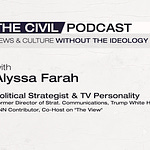

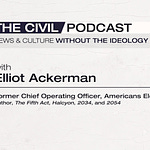



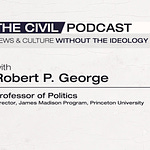

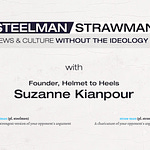

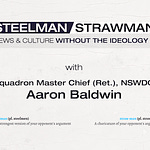

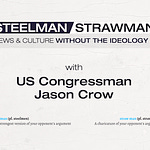
Murthy v. Missouri and the Sword of Damocles over Section 230